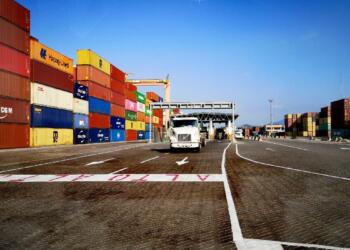
TIJUANA, BC – Achieving sustainable transportation isn’t always sustainable. In Mexico, current regulations, the imbalance between transportation standards and competitive conditions, as well as the alignment that must be achieved in the market, pose greater challenges to trucking companies, a situation that takes into account specific considerations by region.
Within the framework of the panel “Sustainable Transportation: Innovation and Governance in Regional Logistics” of ETYL Cali Baja, specialists debated the points previously addressed. It should also be noted that at the national level, there are regional advances and no single solution can be identified.
Juan Báez, CEO of Bali Express Services , described that as a company that has a focus on achieving zero emissions by 2035, it began in 2024 with the incorporation of electric and compressed natural gas tractor-trailers, and has been able to develop zero-emission routes with a fleet of 60 units between electric and CNG vehicles.
In part, this push for Bali Express Services was achieved through its alignment with incentives from the California government in the United States, where the state government identified that it was more feasible to generate this type of support for the transition away from fossil fuels, rather than continue investing in the public health impacts of pollution, Báez emphasized.
In Mexico’s case, greater communication between regulators and those regulated is needed to achieve greater consistency in the market, emphasized Miguel Elizalde, partner at Mobility Sustainable.
An example of Elizalde’s assertion is what happened with NOM-012 for diesel engine emissions, which was updated starting in January 2025, and where this requirement is not aligned with the ultra-low sulfur diesel (DUBA) regulation, where the government granted Petróleos Mexicanos (Pemex) the tolerance to comply with the regulation of this fuel nationwide until 2027.
In Mexico, in the area linked to California, Juan Báez and Miguel Elizalde agreed, there is a push toward sustainable transportation due to the link with the regulatory requirements in California , but which does not occur in other regions of the country.
For Alicia Zazueta, president of the Mexican Association of Service Station Suppliers (AMPES) , she identified that the energy transition requires several phases, the first being improving fuel quality, where Pemex, which is responsible for marketing 85% of diesel, does not fully comply with low-sulfur diesel.
In addition, Zazueta said, a level-playing energy policy is needed; “nothing has happened in energy policy in six years.”
The president of AMPES indicated that each region in Mexico must identify the best path to promote sustainability. Thus, there are areas where efforts are being driven by biofuels, others by natural gas, and in large cities, by electric mobility. However, there are others that are more behind the curve, such as the southeast, where fossil fuels are more widely available.
Juan Báez emphasized that, in addition to structural issues, the push toward electromobility within the company requires more efficient operations, since electric trucks must operate 24 hours a day. “We can’t have operational problems; we must be more competitive.”
These factors, in addition to fleet renewal and modernization, contribute to increasing the value of companies that opt for electromobility.
Miguel Elizalde emphasized that one factor that must be identified is that there is no single solution, but rather the most viable option, where diesel is the alternative, or where technologies such as CNG or electric power should be the option.
Where participants did agree is that hydrogen seems to be the technology that is furthest from adoption.















